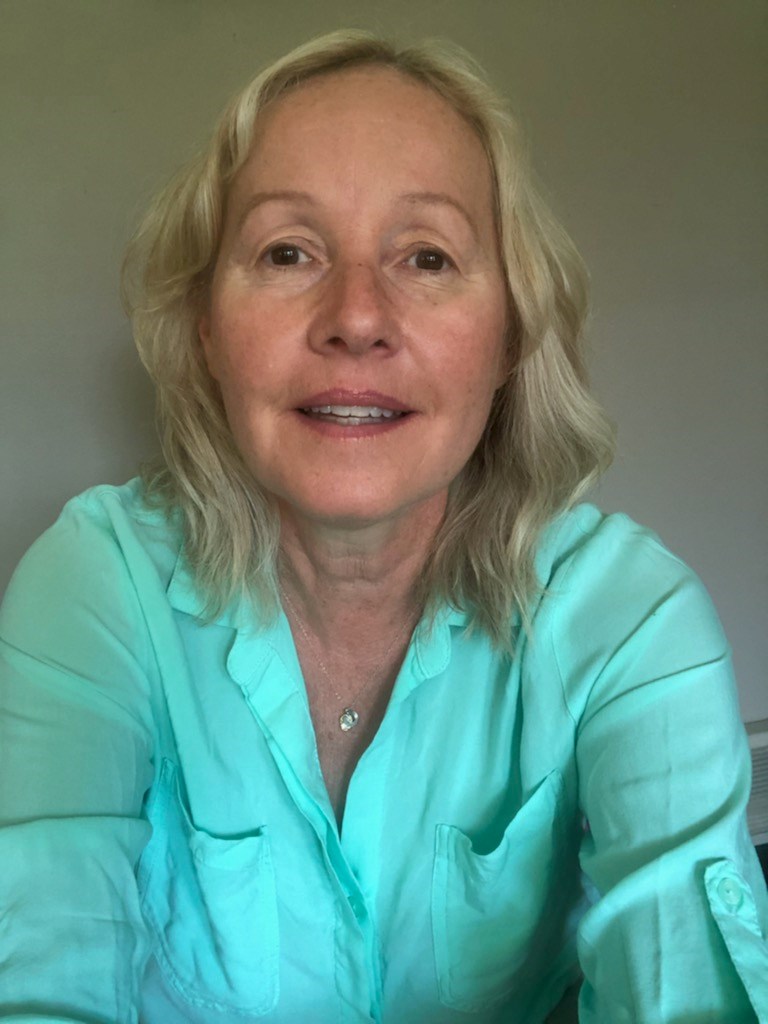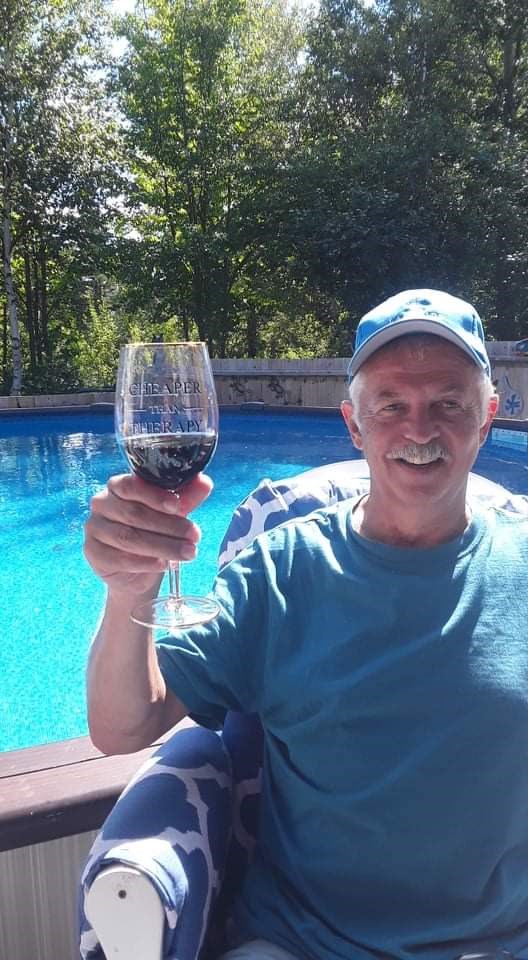
next — just that whatever it is will find her. (Photos supplied)
A retired RCMP officer from Nova Scotia has chosen to open up about some of his experiences during his career, what it’s like to struggle with post-traumatic stress disorder, and how he is dealing with early-onset Alzheimer’s.
To do that, he has been receiving assistance from Beverley Hotchkiss, a Niagara-on-the-Lake woman who has edited and co-authored two other books.
She was isolating during COVID, she explains, and looking for work she could do from home, when she saw an advertisement from Patrick Guy Roy, looking for someone to help him write his memoir. He wanted to share his life story and leave a legacy for his children, and was also hoping it would exercise his brain and strengthen his memory, delaying the progression of Alzheimer’s.
Hotchkiss thought it was something she would be interested in doing, and they spoke by phone and hit it off. A few days later she was offered the job, and was happy to take it.
Hotchkiss has yet to meet Roy in person, but has had nine months of phone conversations and virtual meetings when they’re working, as well as sharing personal life stories over beers and relaxing while playing board games, building a close friendship alongside with a productive working relationship.
She compares Roy’s fear of Alzheimer’s as taking him into retreat, unable to socialize in the way he was accustomed to, as somewhat similar to going into isolation during the pandemic, “except we know we’re going to come out of it. He isn’t. He’s going deeper into it.”

Roy is 62 years old. When he was diagnosed with Alzheimer’s two years ago, he decided he wanted to write about his career as a police officer, and the incidents that led to his PTSD, by putting the thoughts and feelings he had been unable to share in conversation with his family into a book, Hotchkiss explains.
She knew very little about the police as she took on this challenge, she says, other than they were to be avoided, for the tickets they were inclined to write.
That attitude has changed drastically since getting to know Roy, she says.
He spent his life as a provider and protector, looking after his family, and working on the streets of Nova Scotia to catch bad guys, protecting those most vulnerable — women and children.
One of the reasons she felt so in tune with Roy she says, is that she grew up enduring sexual abuse.
Listening and talking to him about his career “was a full-circle moment for me. He was trained to work on the street, and in sexual abuse, working with women in the same situation as I experienced.”
They hadn’t been talking long, she says, when he sensed her understanding had come from a deeper place.
“What happened to you?” he asked, and Hotchkiss was able to talk about her experiences, knowing that openness and understanding was needed for them to work together.
There was much they shared that isn’t part of the book, but helped develop not only a friendship but furthered her understanding of policing, and what Roy, his fellow officers and all police experience, dealing with sexual predators, people with homicidal schizophrenia, domestic violence, drugs, international kidnapping, and a “litany of life-threatening situations, in a career that historically negates male sensitivities and emotions.”
Although the book was originally meant for Roy’s family, Fighting the Good Fight has turned into a story with a much wider audience, says Hotchkiss, including active and retired men and women in policing across the country, those who are suffering from PTSD, and people with Alzheimer’s, especially other men. It’s become a book that will help others in society, she says, not only those dealing with similar issues as Roy, but their families as well.
“We realized it had branched out and will attract a much larger audience. It is tapping a much bigger audience than a memoir for his kids.”
In doing research, she says, she learned there have been very few news stories and few publications from a ‘street-cop’ perspective that deal with the lasting effects of PTSD, and that though there are more than 747,000 people living with Alzheimer’s in Canada, “in my market research I was unable to find a single book written by a man with Alzheimer’s.”
There has been much written about Alzheimer’s, by medical experts, and by women who are in the early stages of the disease, but not by men, who tend to be hesitant to share their thoughts and emotions, she says.
During the course of working with Roy, Hotchkiss spoke to his three children, his current partner, his brother, and some of his policing friends.
There have been evenings, she says, when she, Roy and one of his buddies, “would grab a beer in our respective locales and chat.” That experience has transformed her understanding of these men, their profession, and “the pain and sensitivity that they carry.”
Her work became taking Roy’s writing — he would tell his stories, but they would read like a police report, she says — and through their follow-up conversations, she could fill out the stories, add dialogue and bring them to life.
“It is his voice, and his story,” she says, with her name on the book as editor.
With the writing behind her, Hotchkiss says, “I’m not sure what the universe holds for me next.” She has had her own personal struggles in recent years — a divorce, the loss of her share of a business she had built with her former husband, and then a battle against breast cancer, which completely changed her attitude toward life, she says. It made her realize that life can’t be “just about good or bad experiences, there are always some of both.”
She describes her experience with cancer as “a pretty intense ride.”
A person who felt she had to be in control of every aspect of her life, cancer taught her to relinquish that control, and live for the moment. “I used to try to control life. Now I feel like it will bring me what I need. My role is to listen, to be active and open to what will come next.”
She does that now as a writer and an artist, and discovered during the pandemic she had to “hustle for work,” but that it is work she loves. She also loves her NOTL community, who rallied around her and surrounded her with love and support when she was battling cancer, she says.
She has taught at Niagara College, and hopes there will be an opportunity to teach again in the future, she says, enjoying the mentoring aspect of working with young people.
Hotchkiss also hopes to one day meet Roy in person, and that their friendship will continue. With the book now in the hands of publishers, her current goal is to have it published and in Roy’s hands “before the impact of Alzheimer’s strips him of that awareness.”
And maybe to pitch it as a Netflix series, she adds — Roy’s story is one that would resonate with viewers.